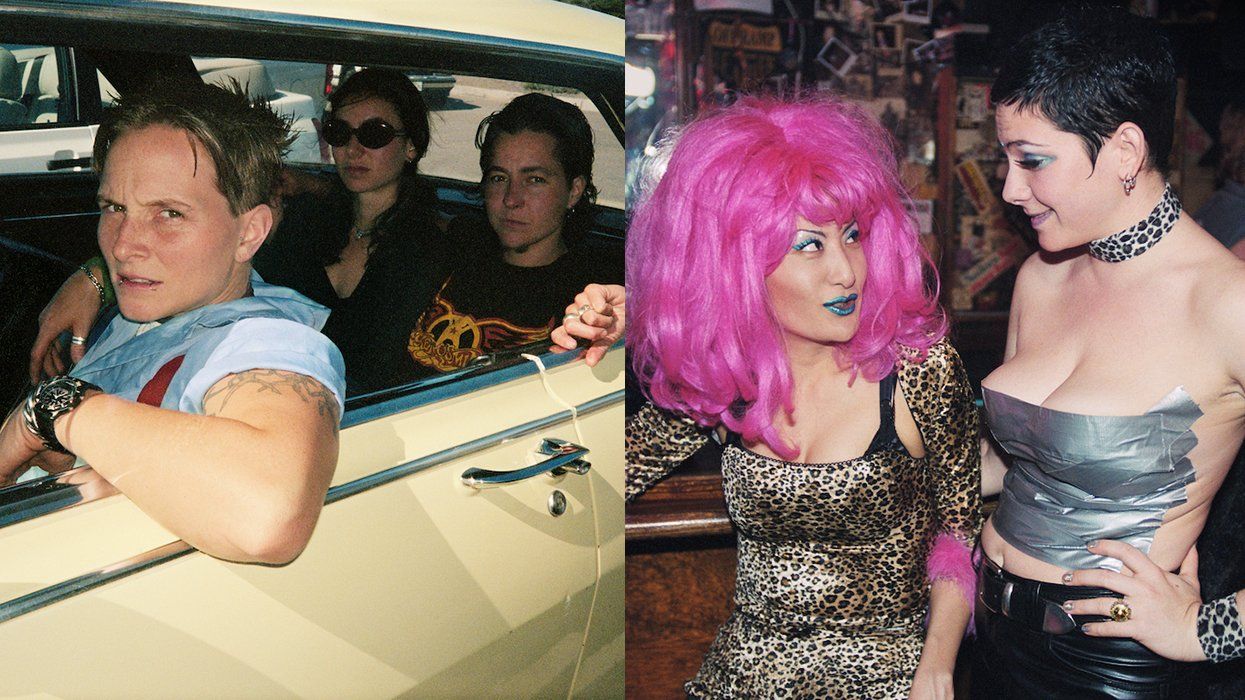The Colorado Supreme Court heard arguments Tuesday in the case of the Denver-area baker who refused to bake a special cake for a transgender woman celebrating her birthday and transition.
Autumn Scardina, a transgender woman and attorney, filed a complaint with the Colorado Civil Rights Commission against Jack Phillips and Masterpiece Cakeshop for violating the Colorado Anti-Discrimination Act.
“This is really about discrimination,” Scardina said in a statement to The Advocate. “Mr. Phillips believes he should have the right to treat his LGBT customers differently, which may seem innocuous when we are dealing with cake, but it has enormous implications.”
Phillips and his bakery were victorious in a previous suit brought by the commission after he refused to bake a special cake celebrating the wedding of two gay men.
On June 26, 2017, the same day the U.S. Supreme Court agreed to hear that case, Masterpiece Cakeshop, Ltd. v. Colorado Civil Rights Commission, Scardina called the bakery to ask the workers there to bake her a pink cake with blue frosting.
They agreed at first but then refused when Scardina said the cake was not just a birthday cake but that the pink and blue colors were symbolic of her journey as a transgender woman. When the cake shop refused to bake the cake under this context, Scardina filed a complaint with the Colorado Civil Rights Commission, alleging that Phillips had violated the state law with his refusal. State officials examined the charge, eventually found in Scardina’s favor and ordered Phillips to provide relief.
Instead, he filed suit against the commission in federal court. The parties quickly settled, and the commission agreed to drop the charges against Phillips.
Since the settlement did not address the merits of Scardina’s claims, she filed a civil suit in court. She won first at trial and then on appeal.
“Mr. Phillips sells pink and blue cakes, and he would create the exact same cake I requested for other customers,” Scardina said. “He simply will not sell it to me because I am transgender. This is not about speech. Mr. Phillips admits that a pink cake and blue frosting does not express any messages, and agreed to bake my design before he found out I was trans.”
Phillips is arguing that only the commission and not Scardina has standing to bring a discrimination complaint against him, that the ruling violates his constitutional rights of freedom of speech and expression, and that the case was settled when Phillips tried unsuccessfully to pay relief of $500.01, which the court and Scardina refused to accept without an admission of guilt.
The U.S. Supreme Court criticized the commission in its 2018 ruling, finding the commission had acted with “elements of a clear and impermissible hostility” toward Phillips and Masterpiece Cakeshop. The court noted inappropriate comments by commission members and that the commission had ruled in favor of three bakeries that had refused to create cakes with anti-LGBTQ+ messages. So in a 7-2 ruling, the high court vacated the finding against Phillips, but it did not establish a broad right to discriminate against LGBTQ+ people in the name of religion.
Attorney Jake Warner represents Phillips. He argued before the Colorado Supreme Court on Tuesday. Warner provided a statement to The Advocate saying the commission's actions denied Phillips his protected rights to freedom of speech and religious beliefs and that the state cannot force him to create an expression that violates these beliefs.
“Jack serves everyone at Masterpiece Cakeshop, including those who identify as LGBT," Warner told The Advocate in a statement. "Whether he creates a custom cake always depends on what the cake will express, not who requests it. For over a decade, government officials and activists have misused state law to threaten and punish Jack because they disagree with him. Yesterday, we asked the Colorado Supreme Court to affirm free speech is for everyone, and to ensure that the government cannot force Jack to create a custom cake expressing a message that violates his beliefs. We also argued that the U.S. Supreme Court’s ruling in 303 Creative v. Elenis reaffirmed that Colorado can’t force artists to express a message inconsistent with their beliefs. We hope the Colorado Supreme Court will protect free speech for all, and finally bring justice for Jack.”
This story has been updated to include the statement from Jake Warner, the attorney for Phillips.
















